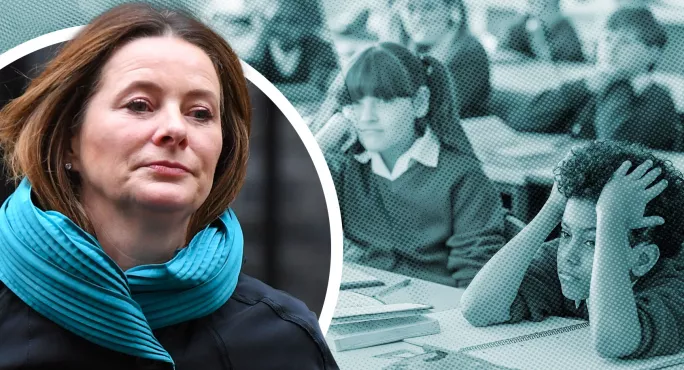The education secretary has admitted the country’s special educational needs and disability (SEND) system is not working well “for anybody”.
Speaking to teachers and school staff in a start-of-term online broadcast this afternoon, Gillian Keegan was asked how the Department for Education (DfE) is planning to fix the SEND system and build capacity.
She said: “I agree that the system is not working well for anybody: for parents, for kids, and for teachers and for special educational needs schools, and for councils as well.”
The education secretary added: “We know we need to improve” the SEND system, and outlined what the DfE is doing to achieve this.
SEND support improvement ‘will take time’
“Part of the problem is getting enough places and that’s something I know the councils have been struggling with,” Ms Keegan said.
She went on: “I’m aware of the problems, we‘re aware of the solutions, we’re working on them. There is an improvement plan.
“We have got investment. We have actually announced new special educational needs free schools - 15 very recently on top of many more that we announced beforehand - but it will take some time to make sure that we have the provision in place.”
Her comments come after she described the SEND system as being in a “lose-lose-lose” situation at the Schools North East Summit in October.
The DfE offers its Safety Valve and Delivering Better Value in SEND programmes support those councils struggling with deficits.
Local authorities get funding to help with their deficits in exchange for reforming their SEND provision. However, there are concerns that these programmes create pressure on councils to make cuts in provision.
‘No push or pause’ in academisation
Ms Keegan was also asked about the future of academisation.
“There’s no push or pause,” she said. “I’m a fan of academies, and particularly when you see the excellent change and turnaround in fortunes of some schools.” But she added that she was “not dogmatic about one particular thing except quality”.
Asked about the department’s plan to fix teacher recruitment and retention, Ms Keegan highlighted the workload reduction taskforce’s work and said: “I think we need to talk the profession up a bit more and we’ve had some difficulties. There have been a few things which have meant that that’s not always been the case.
“I know that we have to do more on recruitment and retention,” she added.
The updated recruitment and retention strategy had originally been due for publication in December, but Tes revealed last year that it had been delayed.
Teacher harassment ‘unacceptable’
Ms Keegan also said that it was “unacceptable” that teachers get harassed, particularly by parents.
“I’m sure the vast majority of parents, like the vast majority of children, are well-behaved and do the right thing.
“But, of course, we do have incidents now where we hear that teachers are feeling that they’re being targeted, or that there are other methods of harassing teachers.
“So, I think personally, we need to look at this more. We’re doing it as part of attendance, as part of the social contract.”
For the latest education news and analysis delivered directly to your inbox every weekday morning, sign up to the Tes Daily newsletter




